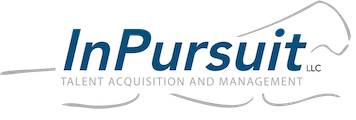I’m often amazed at how some companies, even those who work hard on their image, are woefully unaware of how they tarnish it during the search process. Throughout the years I’ve witnessed companies claim to be one of the ‘Best Places to Work!’ and then proceed to counter that themselves by the way they treat prospective employees.
There are many opportunities for this to happen (from the application process all the way to on-boarding). One instance that gets little attention is the interview process itself. By dragging out this process you risk leaving one or more of these impressions about your company:
-
High levels of bureaucracy - ‘I bet those employees have to jump through a lot of hoops to get things done’
-
Slow decision making abilities - ‘This doesn’t seem to be that important to them and I bet I wouldn’t be either if I worked there’
-
Lack of ability to be nimble in the marketplace - ‘They’re going to get left in the dust and I don’t want to be part of that‘
-
Clarity of purpose and positions - ‘They don’t seem to know what they want’
Perhaps one of these characteristics is actually true of your company. If so, the best you can do is be honest about that and make sure you’re looking at candidates who fit your culture. However if these aren’t true of your company there are a few things you can do to maximize your process:
-
Don’t begin a search until you have the commitment of all parties involved to make interviewing a priority.This commitment includes being available to interview, keeping the appointments and being on time. Make sure all the people who will be interviewing understand the importance of the process and how it affects the image of the company (not to mention their own). Handling this poorly shows disrespect and arrogance. This isn’t the 80’s and no one wants to work for Gordon Gecko anymore.
-
Have clear specs before starting a search.Forget the ‘batch’ type of interviewing process where you wait to interview until you have a group of qualified candidates. Early on in my career I was taught this silly (but meaningful) analogy: If someone asked you to marry them, you wouldn’t say ‘well let me date a few more people and I’ll let you know if you’re the one’. You know Mr. or Mrs. Right because you know yourself (company) and the kind of partner (employee) you’d be compatible with. The batch method is a sure way not only to lose a great candidate but to leave a bad impression.
-
Keep your recruitment partner informed.If a candidate doesn’t fit but you don’t explain why, it’s going to take you a lot longer, and more interviewees to get to the right hire. Even with clear specifications there are many intangibles that can sway a decision. If all it took to make the perfect hire was to match up resumes, hiring would be a breeze and all companies would have ideal employees. Tell you recruiter where this person hit the bulls eye and where they fell short and the next person you interview will be a much closer fit if not right on.
-
Communicate in a timely manner with candidates.Whether you’re working with through a recruiting partner or directly with candidates, let them know where you’re at in the process and where they stand. If they reach out to you, be responsive. Be honest and forthright and then even if you don’t hire the individual, you’ll have left a positive impression for both you and your company.
Remember, information is not only easy to get these days, it’s easy to share. Mess up this process and best case, unhappy interviewees tell their Facebook friends how badly they feel they were treated. Worst case they tell everyone on YOUR Facebook. Think about the kind of ‘status updates’ you’d like to see with your company’s name in them and build your process around that.
